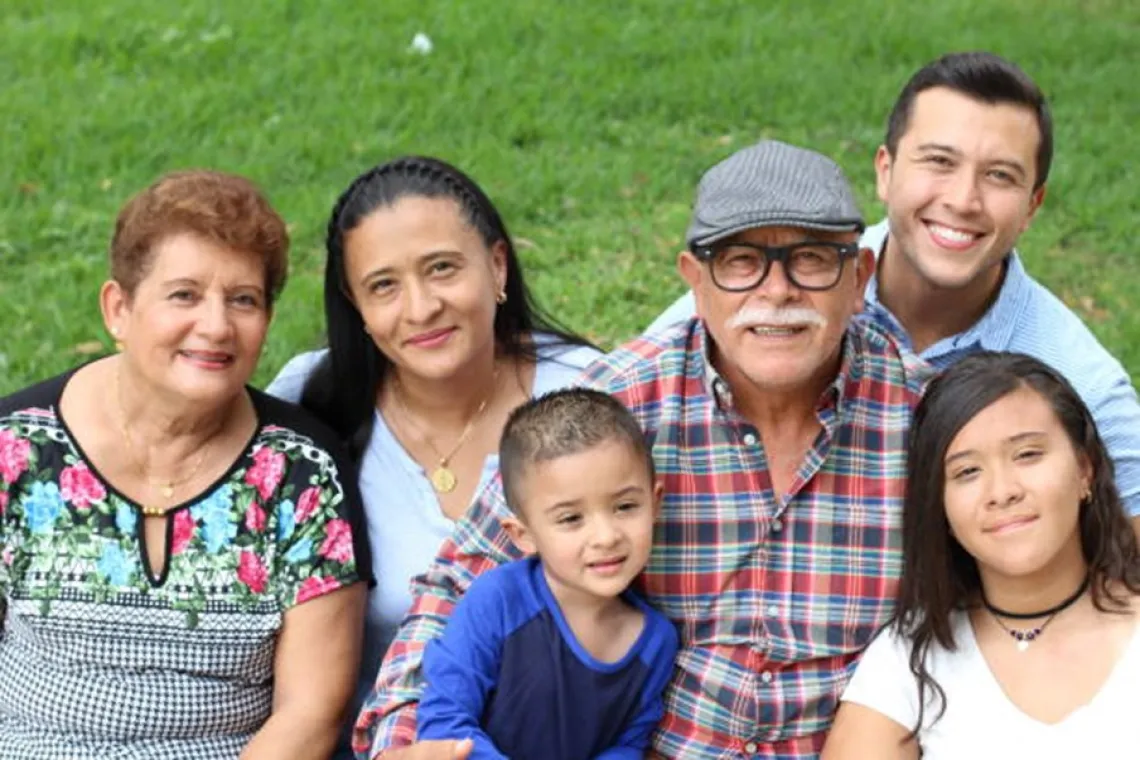Families are Important for College Student Success

Informal familial support is an influential resource that families can offer to college students and contributes to students’ college achievement as well as students continuing in their major. While the strategies listed below are not meant to be applied across all families, they have been found to be particularly helpful for Latino/a/x, non-traditional college students, and students who come from a low-income background and their families.
Why is family support important?
Informal support that comes from family members and friends is a resource students use to navigate the difficulties they experience personally and academically1. Socio-emotional support can be, “receiving specific advice regarding college and career choices, recognition, and pep-talks”, and instrumental support can be “in-kind financial assistance, such as childcare, housing and transportation”1. Several researchers show that informal family support encourages positive student outcomes for students who are the first ones to go to college, Latino/a/x, non-traditional college students, and students who come from a low-income background 2 3. Family support, which can include grandparents, uncles, aunts, neighbors, friends, children, romantic partners, and other members that are part of the student’s community, is a resource that not only helps college students bounce back up from an academic and/or personal obstacle, but it can also give them the motivation to continue with their goal of continuing in their college and/or university majors. The life experiences, cultural knowledge and practices, and the support family members provide are powerful tools that are incredibly valuable and deserve recognition.
How can families offer socio-emotional support to students?
- Sharing your students’ excitement for their schoolwork and classes
- Letting your student know you believe in them
- Listening to your student talk about their school and personal challenges
- Telling your student how proud they make you
- Giving advice to your student about school and personal challenges
- Asking your student how they are doing and having frequent communication with them
How can families offer informal support to students living at home?
- Making sure student stays hydrated and has meals while studying or doing schoolwork
- Providing transportation to student to go to school and/or work
- Help with taking care of their child (if applicable) while they are in school and/or at work
- Giving the student “quiet” time and space to study and do their schoolwork
- Offering to help with housing payments and/or bills
Resources you can share with your student
Financial Assistance
https://hsi.arizona.edu/student-resources/financial-assistance
Academic Success
https://hsi.arizona.edu/student-resources/academic-success
Health & Wellness
https://hsi.arizona.edu/students/health-wellness
Clubs & Organizations
https://hsi.arizona.edu/students/clubs-organizations
Cultural & Resource Centers
https://hsi.arizona.edu/student-resources/cultural-resource-centers
References
- Jabbar, H., Serrata, C., Epstein, E., & Sanchez, J. (2019). "Echale ganas": Family support of Latino/a community college students' transfer to four-year universities. Journal of Latinos and Education, 18(3), 258-276. https://doi.org/10.1080/15348431.2017.1390462.
- Luna, N.A., & Martinez, M. (2013). A qualitative study using community cultural wealth to understand the educational experiences of Latino college students. Journal of Praxis in Multicultural Education, 9(1). http://doi.org/10.9741/2161-2978.1045.
- Roksa, J., & Kinsley, P. (2019). The role of family support in facilitating academic success of low-income students. Research in Higher Education, 60, 415-436. https://doi-org.ezproxy1.library.arizona.edu/10.1007/s11162-018-9517-z.

